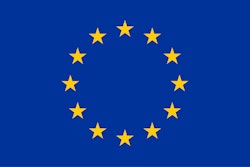
As part of the EU-funded LoGov project, we had the chance to take a personal close look at how the Swiss system of civic participation works, also thanks to conversations and interviews with experts, scholars, and practitioners working on Swiss multi-level democracy.
Trust and civic participation
Switzerland is a small country of 8.9 million people, 4 official languages, 26 cantons, and around 2131 communes. It is a federation (even though it calls itself a confederation) with three levels of government: national, cantonal, municipal levels. It has a semi-direct democratic system where instruments of direct democracy tools are used in parallel to traditional channels of representative democracy at all levels of government. According to the 2024 OECD Survey on Drivers of Trust in Public Institutions (Trust Survey), Switzerland is among best rated countries in the index. Over 60% of Swiss people have high trust in their national government, the OECD average is 39.3%. Over 60% of Switzerland’s citizens find the opportunity to voice opinions on local government decisions very likely; the OECD average is 42%. Close to 60% of the Swiss people, compared to the 30% average in OECD countries, believe that the political system allows them to have a say in government decisions.
This trust Swiss citizens have in their government could be linked to the many opportunities they have to influence government decisions which constitute the essence of the Swiss democracy. Citizens can participate in decision-making processes at all levels of government using a variety of participatory mechanisms. In addition to the tools put in place by the federal or cantonal constitutions, there is a wide variety of additional tools that the municipalities offer thanks to their local autonomy. The principle of self-rule is predominant in the context of Swiss federalism which permits the cantons to have high levels of autonomy. Within each canton’s organization of its territory, individual municipalities have varying degrees of diversity in the scope of their autonomy granted by their respective cantons’ legislation.
Direct democracy tools: popular initiative and referendum
There are two main pillars of direct democracy in Switzerland: popular initiative and referendum. The popular initiative is used "to press the reform accelerator", while referendum is seen "to activate the emergency brake". The popular initiative allows for a minimum of 100,000 Swiss citizens to demand a constitutional amendment at the federal level, therefore being able to influence the political agenda. It is also used at the cantonal and local levels to propose laws and acts. For example, in the municipality of Bern citizens can launch an initiative by collecting 5,000 signatures within six months.
Referenda can be of two types: mandatory and optional. According to the general Swiss approach to decision-making processes, all levels of government tend to seek broad majorities among citizens before taking a decision on a certain matter. This is done to ensure the support of people in advance, so that there is less or no risk of resistance or dispute once the decision has been made. This modus operandi is what some people call "consensus democracy", referring to the Swiss form of democracy as one that aims to involve as large a number of players (political parties, trade unions, minorities, social groups) in the political process as possible so as to reach decisions by consensus.
At the federal level, a mandatory referendum takes place on specific matters according to Article 140 (among the others, on amendments to the Federal Constitution), while an optional referendum can be launched according to Article 141 with the signatures of 50,000 voters or, by request of 8 cantons, on new laws or changes to laws. At cantonal and municipal levels referenda can also be launched: this differs from canton to canton, and in accordance with each municipal statute. For example, in the municipality of Bern, an optional referendum can be launched with 1,500 signatures collected within 60 days. According to the 2024 OECD trust survey, Switzerland is the country with the most widespread use of referendums: this constitutes a true routinary mechanism for citizens’ involvement in decision making processes.
Other institutional options for civic participation
In addition to these two main pillars of direct democracy provided for in the federal constitution, there is a vast array of other participatory instruments available, especially at the municipal and cantonal levels. There are various types of formal and informal consultation in legislative and decision-making processes at federal, cantonal, and municipal levels. There is a consultation process in many municipalities that involves neighbourhood residents, children and youth, parents, elderly people, and residents with no Swiss citizenship. There are also other participatory instruments including petitioning. Additionally, there are newly "invented" methods of participation which allow individual activists and interest groups to try to influence the political agenda and the decision-making process at all levels. The municipality of Bern, for instance, offers advisory commissions such as one on migration and racism issues, participation motions for foreigners as well as a children’s and youth parliament. All these forms of civic participation at the local level are possible thanks to the principle of local autonomy granted to municipalities to design their participatory approaches.
Witnessing a citizens’ assembly in Brienz
With no doubt, a very distinctive form of civic participation at local level is what is called Gemeindeversammlung, which is a citizens’ assembly where all residents of the respective municipality (but only those that are Swiss citizens – this constitutes a critical aspect) can participate in the decision-making process. They do so by voting on legislative, administrative and financial decisions presented by the municipal council.
On 27 June 2024, we took part in a Gemeindeversammlung in Brienz, a small municipality of about 3000 inhabitants which is part of Bern’s Interlaken-Oberhasli district. Its municipal council, composed of six members who are elected for four-year terms – including the mayor who is the president of the council and who is directly elected for the position – exercises executive authority. The municipality has administrative offices that take care of administrative tasks. Some 80 residents of the municipality were present (9.3% of citizens with voting rights). The speaker of the assembly welcomed the attendees whilst introducing us as external non-voting participants and then introduced the agenda of the day, as well as asking if the attendees sought to introduce any additional agendas. The agenda covered a wide range of issues including taxes, schools, parking lots, the water treatment system as well as energy, tourism and housing. Each member of the council responsible for the respective agenda items made a presentation. Major successes were celebrated, these included a surplus budget and the completion of a new kindergarten, challenges were highlighted, and future projects were presented.
Two things stood out from the assembly meeting in question. First, the attendees were asked to vote on each report. Two members of the assembly were assigned to count votes, even though they did not have to do any counting since the assembly approved each report unanimously. This time there were only a couple of questions, and this seems to reflect the trust that members of the municipal council receive from the town’s inhabitants. However, we were told meetings of municipal assemblies, both in Brienz and elsewhere, do not always go as smoothly as the one we attended. Questions and expressions of disagreement vary depending on the topic and local context. In some cases, members of the assembly ask difficult questions, level stern criticisms, and express serious disagreements. The second aspect we noticed was that the youth was nearly absent from the meeting, nearly everyone in attendance being of an older demographic. This seems to reflect the worldwide trend of a generalized lack of enthusiasm for political participation on the side of young people: this is seen as a serious challenge also to Swiss local democracy. The good news is that there are numerous other platforms for civic participation at all levels of government, where young citizens are invited to participate and contribute with ideas. The youth tend to contribute more when what is at issue is something that they are especially passionate about, like the environment.
Some final considerations
Swiss citizens have manifold institutional options for participation that originated from and are rooted in the Swiss people’s communal tradition. In Switzerland, citizens can voice their opinions and concerns on all matters ranging from local issues such as deciding the number of animals a single household can send to the mountains for grazing, to international matters such as whether Switzerland should abandon its long-held neutrality on international politics and support Ukraine in its war against Russia. It comes naturally for Swiss citizens to discuss, negotiate, make compromises, and pass decisions that are acceptable to the majority of people. This often comes at the expense of swift decision-making processes, that in Switzerland in fact are deemed to be slow and lengthy. However, decisions made as such have undisputed legitimacy and the propensity to be effectively implemented. Additionally, it is less likely that dispute will arise after a certain decision has been made, since the search for popular support has already been undertaken in advance. Therefore, thanks to the many institutional mechanisms of participation, public authorities enjoy a wide degree of trust from Switzerland’s citizens.
The Swiss system of civic participation cannot be simply transplanted into other legal orders since these institutions and traditions of public participation have emerged and evolved over time in the unique political and cultural context. These conditions are not always present in other areas yet, the Swiss experiences once again confirm what is almost a truism: decisions made based on genuine public participation are likely to enjoy legitimacy and bring about trust in public institutions
Chiara Salati and Zemelak Ayitenew Ayele
The Swiss system of civic participation cannot be simply transplanted into other legal orders since these institutions and traditions of public participation have emerged and evolved over time in the unique political and cultural context. These conditions are not always present in other areas yet, the Swiss experiences once again confirm what is almost a truism: decisions made based on genuine public participation are likely to enjoy legitimacy and bring about trust in public institutions. These should thus serve the purpose of inspiring other countries and societies, based on their context, to explore diverse ways of involving citizens in decision-making: this, indeed, could happen at all levels of government.


Citation
This content is licensed under a Creative Commons Attribution 4.0 International license except for third-party materials or where otherwise noted.


This blog is part of the LoGov project. The project has recevied funding from th European Union's Horizon 2020 research and innovation programme under Grant Agreement No 823961.

The power of satire in challenging nationalism thinking: “Bon Schuur Ticino” and a tragicomic monolingual Switzerland
 Nicolò Alessi
Nicolò Alessi
Georgia's Path to Inclusivity: Integrating Ethnic Minorities through Education and Policy Reform
 Alina Salakhunova
Alina Salakhunova
Promoting renewable energy in Italy: the role of municipalities and citizens
 Matteo Battistelli
Matteo Battistelli